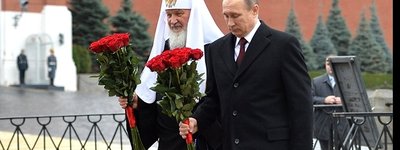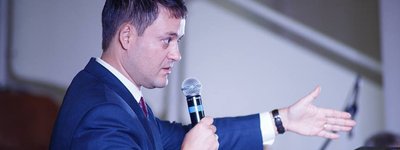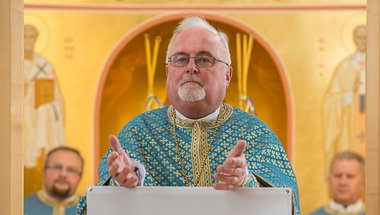“Russian World” or Kyivan Christianity?
A Eurasian turn in Russian foreign policy could be good news for Ukraine – not only politically and militarily, but also ecclesiologically.
At a June 2 lecture at the Kennan Institute in Washington, DC entitled “What Does Russia Really Want?” Russian political analyst Dmitrii Polikanov claimed that today’s Russian government is leaning away from European concerns and towards the Asia-Pacific region. If that is true, what are the implications for the concept of a “Russian world,” and for the Moscow Patriarchate’s role in propagating it?
Even if one does not accept this claim (after all, some of Mr. Polikanov’s other assertions were disputable), one can still note the prediction, sometimes heard these days, that Russia will follow the tradition of the Mongol Golden Horde rather than that of Kyivan Rus’. In this view, Russia may ultimately be swallowed by China – and there are Russians who would favor such an “Asian” turn. This would be a return to Eurasianism – an intellectual trend in vogue in the 1920s and 1930s, which emphasized Russia’s Asiatic heritage rather than its historic attempts to become a part of Europe and the West. Again, if this is true, what does it mean for the “Russian world” and the Russian Orthodox Church?
Finally, one is reminded of another tendency in contemporary Russia, a demographic one: the decline in the Slavic population and the increase of the Turkic speakers, who are mostly Muslim. There have been predictions that within a century or less, Russia might become Islamic. In Ukrainian diplomat Yuri Shcherbak’s futuristic novel “Chas smertokhrystiv,” Russia is taken over by an Islamic “Black Horde.”
If any of these scenarios should prove true, it would mean that Russia’s (or its successor state’s) policy towards its western and southwestern flank would most likely be to maintain the border, not move it. In that case, the restoration of Kyivan Rus’ as an East Slavic and Orthodox “Russian world” would presumably be discarded in favor of an Asian identity and Asian ambitions. It would not be the first time, after all, that Russia had expanded into the Pacific: Alaska was Russian until 1867, and there are still relics of Russian settlement in northern California.
Such a re-orientation of Russian interests might temporarily diminish the foreign-policy role of the Moscow Patriarchate -- until it should discover its Asian mission. But getting out of the foreign-policy business might be a good thing for the Russian Church. For now it could focus on its proper task, that of Christianizing its own people. In a country where adherence to Orthodoxy is superficial while actual religious practice is minimal, the Moscow Patriarchate has an enormous amount of work to do in evangelizing the Russians themselves.
Of course, a Eurasian turn in Russian foreign policy could be good news for Ukraine – not only politically and militarily, but also ecclesiologically. For it would create “geo-ecclesiological space” for a revival of Kyivan Christianity. Kyiv would regain its rightful place as the center of East Slavic Christendom. Its metropolitanate, fully deserving of patriarchal status, might even regain its proper jurisdiction over the daughter churches of Belarus and Russia. This would not mean an extension of Ukrainian political power -- Ukraine has no pretensions to rule other lands. Rather, it would restore a proper, historically based order of precedence among the Orthodox Churches of East Europe.
Today, such a vision seems fantastic. But events and opportunities are unpredictable. The future may lie not with the artificially constructed “Russian World,” but with a revived Kyivan Christianity. Such a vision, nevertheless, cannot be realized if it is not, first of all, imagined.










